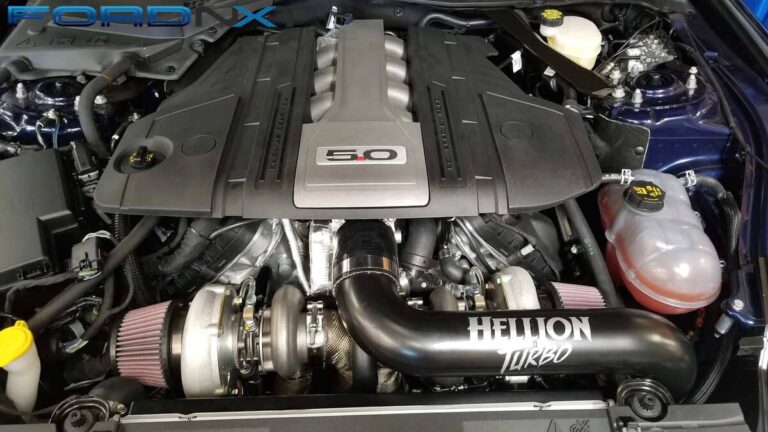How to Easily Remove Water from Diesel Fuel?

Diesel fuel is a widely used fuel type, especially in the transportation industry. However, diesel fuel can become contaminated with water, which can cause significant damage to the engine. Water in diesel fuel can cause corrosion, reduce lubrication, and decrease the fuel’s efficiency. Therefore, it is crucial to remove water from diesel fuel as soon as possible.
Removing water from diesel fuel is a simple process that can be done using various methods. Some of the most effective methods include using additives, draining the fuel tank, and using absorbent materials. Each method has its advantages and disadvantages, and the choice of the method depends on the severity of the contamination and the available resources. By following the right procedure, diesel fuel can be restored to its original quality, ensuring the engine’s optimal performance.
Table of Contents
Why Remove Water from Diesel Fuel?
The Negative Effects of Water in Diesel Fuel
Water in diesel fuel can have several negative effects on the engine, including reduced fuel efficiency, engine damage, and increased maintenance costs. When water enters the fuel system, it can cause corrosion, rust, and sediment buildup. These contaminants can clog fuel filters, injectors, and pumps, leading to engine failure and reduced performance.
Additionally, water in diesel fuel can promote the growth of bacteria and other microorganisms, which can cause fuel degradation and clog fuel lines. This can lead to fuel starvation and engine shutdown, resulting in costly repairs and downtime.
The Importance of Removing Water from Diesel Fuel
Removing water from diesel fuel is crucial for maintaining engine performance and preventing damage. There are several methods for removing water from diesel fuel, including using additives, filtering, and settling.
One effective method is to use isopropyl alcohol, which can bond with the water and allow it to be removed through the fuel system. Another method is to use an absorbent material like activated carbon or clay powder, which can draw the water out of the fuel and leave it dry.
Regularly checking and removing water from diesel fuel can help prevent engine damage and reduce maintenance costs. It is important to follow proper fuel storage and handling procedures to minimize the risk of water contamination and ensure optimal engine performance.
How to Remove Water from Diesel Fuel?
Removing water from diesel fuel is essential to keep the engine running smoothly and prevent damage. Here are the steps to remove water from diesel fuel.
Materials Needed
Before starting, gather the following materials:
- Isopropyl alcohol or diesel fuel additive
- Clear container
- Siphon hose
- Absorbent material like activated carbon or clay powder
- Diesel 911 or preferred diesel additive
- Fuel filter
Step-by-Step Process
- Drain or pump as much water out of the fuel tank as possible using a siphon hose long enough to reach the bottom of the tank.
- Add isopropyl alcohol or diesel fuel additive to the fuel tank. The additive will mix with the fuel and sink to the bottom of the tank, bonding with any water present.
- Wait for a few hours to allow the additive to settle and bond with the water. After the waiting period, drain the tank again using the siphon hose.
- Place the absorbent material like activated carbon or clay powder in a container with the diesel fuel. The porous material will draw the water out of the fuel and leave it dry. Change the filter periodically to prevent the diesel fuel from becoming too thick.
- Add the proper amount of Diesel 911 or your preferred diesel additive to the fuel tank. The appropriate mixture for removing water as recommended by Diesel 911 is 32 ounces for every 100 gallons of diesel fuel.
Preventative Measures
How to Avoid Water Contamination
Preventing water contamination in diesel fuel is the best way to avoid the need to remove water from diesel fuel. Here are some tips to help prevent water contamination:
- Store diesel fuel in a dry and cool place.
- Keep fuel tanks and lines clean and free of debris.
- Use high-quality fuel filters and replace them regularly.
- Check for leaks in fuel tanks and lines and repair them immediately.
- Avoid filling fuel tanks during or after rain or snowfall.
- Drain water separators regularly.
- Use fuel additives that help prevent water contamination.
Regular Maintenance Tips
Regular maintenance is essential to prevent water contamination in diesel fuel. Here are some tips to help maintain diesel fuel and prevent water contamination:
- Inspect fuel tanks and lines regularly for signs of corrosion or damage.
- Drain water separators and change fuel filters regularly.
- Keep fuel tanks full to minimize the amount of air in the tank, which can lead to condensation.
- Use a biocide to kill any microbes that may grow in diesel fuel.
- Keep fuel tanks and lines clean and free of debris.
- Use a fuel stabilizer to prevent oxidation and degradation of diesel fuel.
Conclusion
Removing water from diesel fuel is a crucial step in ensuring the smooth functioning of your engine. Water in diesel fuel can cause significant damage to the engine, leading to costly repairs. Fortunately, there are several effective methods for removing water from diesel fuel.
One of the most effective methods for removing water from diesel fuel is to use an isopropyl alcohol hydrocarbon additive. This additive mixes with the fuel and sinks to the bottom of the tank, where it chemically bonds with any water present. Another method is to use an absorbent material like activated carbon or clay powder, which draws the water out of the fuel and leaves it dry.
It is also important to drain or pump out as much water as possible from the fuel tank before adding any additives. Once the water has been removed, it is important to add the appropriate amount of diesel additive to the fuel tank to prevent any future water accumulation.
Overall, removing water from diesel fuel is a simple process that can save you from costly engine repairs. By following the methods outlined in this article, you can ensure that your engine runs smoothly and efficiently.
FAQs
Can I use rubbing alcohol to remove water from diesel fuel?
While isopropyl alcohol can be used to remove water from diesel fuel, it is not recommended as a long-term solution. Isopropyl alcohol can damage your engine if used in excess, and it can also cause your fuel to lose lubrication properties.
Can I use rice to absorb water from diesel fuel?
While rice can absorb moisture, it is not an effective method for removing water from diesel fuel. Rice grains can clog fuel filters and cause damage to your engine.
How often should I check my diesel fuel for water?
It is recommended to check your diesel fuel for water at least once a week. This will help you catch any water contamination early on and prevent damage to your engine.
Can I use a fuel additive to prevent water contamination?
Yes, there are many fuel additives available that can help prevent water contamination in diesel fuel. Look for additives that contain detergents and dispersants to keep your fuel system clean and free of water.
How do I dispose of water-contaminated diesel fuel?
Water-contaminated diesel fuel should be disposed of properly at a hazardous waste facility. Do not pour it down the drain or dispose of it in the trash, as it can harm the environment.







